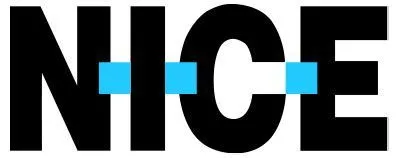National Public Safety Telecommunicator’s Week recognizes annually the important contributions that telecommunicators make in their communities.
We are truly the first of the first responders, fielding an estimated 240 million calls per year in the United States. Telecommunicators provide quick efficient service and direction to people in need. In addition, with the use of medical protocols, we provide live-saving instructions for medical situations that span the gamut from paper cuts to women giving birth, to providing instructions for choking victims or people who have stopped breathing and need immediate CPR.
As a proud Californian, I take pride in recognizing Patricia Anderson of the Contra Costa Sheriff’s Office who began celebrating the first official National Public Safety Telecommunicators Week in 1981 in Martinez, California. Her efforts have grown into an international celebration of our profession which was long overdue.
Telecommunicators are amazing and complex people with a unique set of skills. We work long hours including overnights, weekends, and holidays, 365 days per year. A fully staffed communications center resembles an urban legend, so most of us are with our coworkers more than our families. Each time we enter the dispatch center, we sit down at a console knowing that anything might be coming our way.
We are the voices of calm in what often seems like a sea of chaos. We effortlessly switch gears from answering phones to radio dispatching to monitoring any number of systems and new technologies that continue to be introduced. (Real question for the 911 telecommunicators out there - how many user names and passwords do you have?!?)
We are the most decisive and headstrong people on the planet, but do not ask us what we want for lunch because we cannot decide. We also usually have no less than 3-4 different beverages on our consoles at any given moment. We are thirsty people. Telecommunicators often exude a gruff demeanor, but underneath it all, we care deeply. We care about the people calling in, we care about our field responders, and we are all about our co-workers and partners in the center.
Tensions run high because there’s little room for error, especially when your caller is hiding under a bed during a home invasion pleading with you for help, or when a mother needs you to provide instructions on how to deliver back blows to help her choking baby. After stressful incidents on the radio or on the phone, we review the scenarios in our heads over and over, second-guessing if we could have done anything different or if we could have improved our performance. Speaking from personal experience, we are our own worst critics and we often do not accept compliments or praises that come our way. This is simply who we are.
Health and wellness often take a backseat in this profession that requires you to be plugged in and at a console in close quarters for hours at a time. The sedentary nature of the job is truly a challenge for us all.
During the Covid-19 pandemic, most people would have balked at coming into workplaces with little possibility of social distancing. Yet, we still showed up because we knew that our field responders and the public needed us. This is who we are. We show up and we take care of business.
If you are in this profession, some words of advice. Please take some time for yourself and redouble your efforts to practice good self-care. Try to go for a walk outside on your lunch break if you can, actually take a day off versus picking up that overtime shift (you know who you are!) and rediscover your why. Ensure that you are taking care of yourself and putting on your oxygen mask first before helping others. This will ensure that you will continue to survive and thrive in this amazing career.
At the same time, if you feel that you are struggling in this career, then do not be afraid to ask for help. Utilize your agency’s EAP program. You may also ask your supervisor or your agency’s peer support team for help. Undiagnosed Post-Traumatic Stress Disorder is rampant in our profession and the healthiest thing you can do is recognize this and ask for help if you need it. Your family, your co-workers, and most importantly you will benefit from a healthier you.
For this National Public Safety Telecommunicator’s Week in 2022, I offer my thanks and admiration to all my fellow telecommunicators (or dispatchers if you prefer that term). I hope that you take this week and allow yourselves to be honored and celebrated. You have a chosen a noble, yet challenging profession that few can master. Take pride in your work and the impact that you make on your community each and every day. I am proud to share this profession with you.


